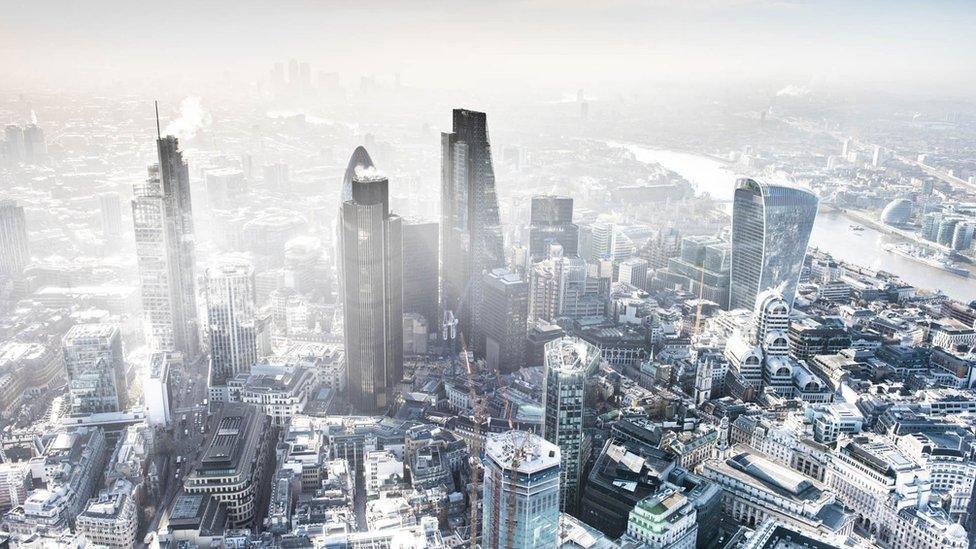London's new black cab secretly tested in Arctic Circle
- Published
Why are black cabs being tested in the Arctic Circle?
It was slightly strange, cruising along in the back of a London black cab - in the Arctic Circle.
It was minus 10C outside, and that was without the effect of the howling wind and driving snow.
But this is where the brand new design for this iconic vehicle is secretly being tested.
The one we were driving in was black and white, camouflaged so competitors could not take accurate photos.
The camouflage hid the contours but when it hits the streets the cab will be the usual, traditional, colour and shape.
The critical difference is in how it sounds - virtually silent.
Because the new cab has an electric engine it is almost a zero-emissions vehicle, although it does have a small petrol motor that can charge the battery from time to time, to extend its range.
It is being put through its paces on the edge of Norway for two reasons.
One, the manufacturer tests all new vehicles in extreme temperatures to see how they perform.
Two, it wants to sell it in polluted cities all over the world, including Moscow, which can get a little chilly in the winter.
The diesel problem
At the moment, all black cabs have diesel engines, and diesel has become the new villain in the war on air pollution.
Figures from Transport for London - from 2013 - estimate that black taxis are responsible for 15% of the poisonous gases called nitrogen oxides produced by traffic in central London.
They also generate 26% of the harmful, larger, soot-like particles called PM10s, and 31% of the smaller particles, called PM2.5s.
The Mayor of London, Sadiq Khan, has made cleaning the air in the city his number one priority, so by 2018 he says that every newly-licensed taxi must be "zero-emissions capable".
That basically means you need to be able to drive 30 miles without generating any air pollution, which is something the new cabs can easily do.
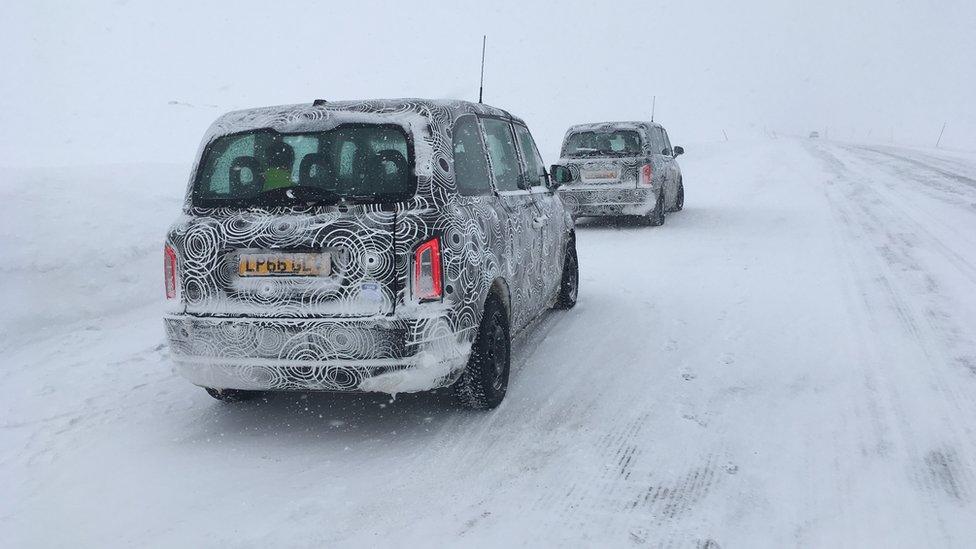
The black and white design hides the contours so that competitors can't see the design
There are also plans for 150 rapid charging points by 2018, and for 300 of them by 2020.
But even allowing for thousands of pounds in subsidies, the new cab will cost more than £40,000 each.
When I - somewhat unscientifically - stopped seven or eight drivers as they sat in a rank waiting for passengers, I got the same response each time and it was along these lines:
"Nice idea, but business is haemorrhaging with all the mini cab apps and I just can't afford it!"
Some made the point that the younger drivers might think it was worth the investment, but the older ones did not feel they would ever make their money back.
Mind you, Steve McNamara from the Licensed Taxi Drivers' Association (LTDA) - which represents many cabbies - was in Norway to see the new vehicle in action.
Not only did he like it, he told me it was vital that cabbies went green.
A Brit abroad
It may be a British icon but the new taxi has an international feel.
It will be manufactured at a brand new, £300m factory in Coventry, all funded by Chinese money after the giant automaker Geely stepped in to rescue the London Taxi Company in 2013.
The team in Norway were mainly from Sweden (Geely owns Volvo too) and there was a German engineer, Dr Wolfram Liedtke, leading quality control.
He happens to be a former East German international cyclist, who narrowly missed making the team for the 1960 Rome Olympics.
While sitting in the back of the cab, cosied up against the wind, Dr Liedtke told me that Geely plans to make far more cabs than are needed for the UK market.
"We've had interest from Paris, from Madrid, from Berlin, from China," he said.
Air pollution, it seems, is a universal problem.

- Published6 March 2017
- Published3 March 2017
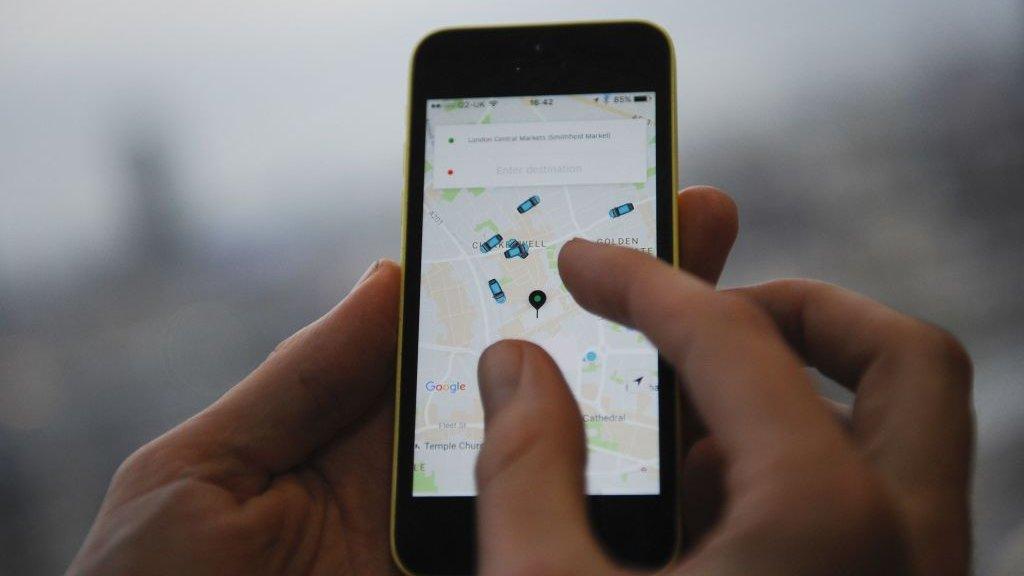
- Published25 February 2017
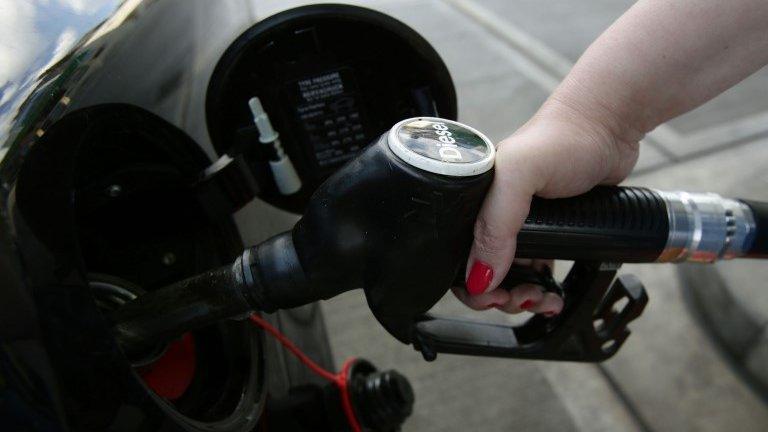
- Published23 January 2017
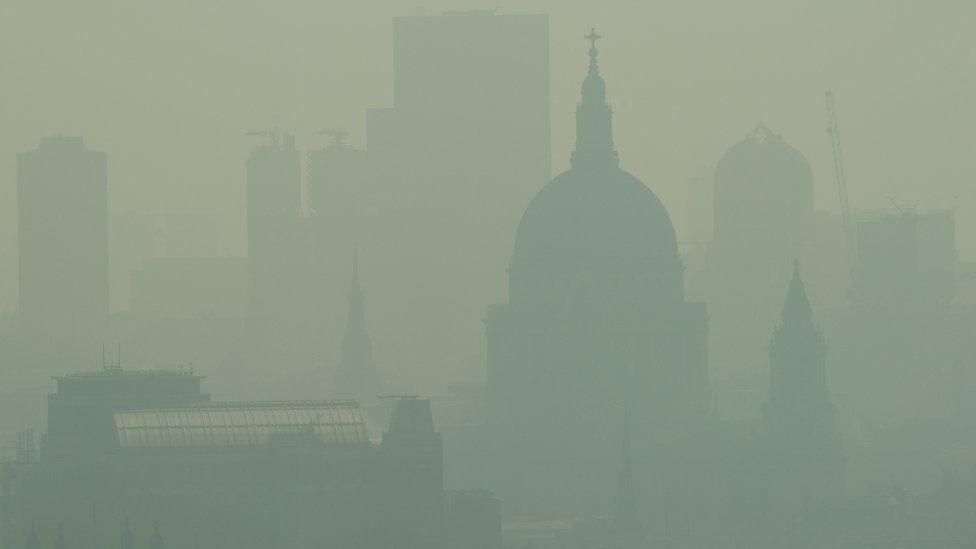
- Published19 January 2017
